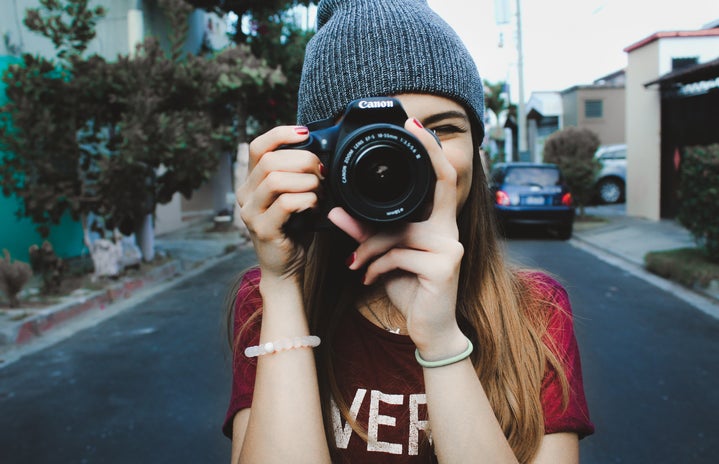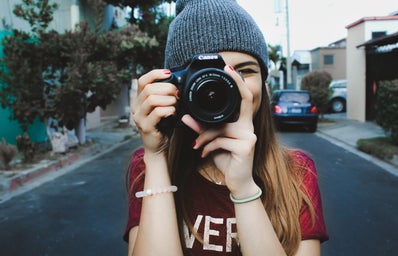By Shauna Mazenes
Fall rolls around. You, being the social media fiend you are, log in to Instagram to see what super cute and slightly intoxicating beauty trends are circulating this season. What do you see?
You see a freak of nature; the vision of all your longings, the embodiment of perfection. You think about all the money you’ve exhausted on cameras in a weak attempt to capture the majestic moments in life. Meanwhile, the epitome of imperial beauty before your eyes merely cost you the tap of your finger.
A bow and arrow outline accentuates her plump, deep crimson lips, created with the precision of an architect. Her brow bone reflects a ray of iridescence, like light passing through a diamond, roofed by a slick, air brushed checkmark you know can only be Anastasia Beverly Hills Cosmetics. The triangle shape of her eyeliner extends seamlessly from her lash line into a tail so sharp it could draw blood. Her eyelashes flutter with the spirit of million butterflies; two almonds encompassing two lustrous pearls.
She stands there, basking in her diamond radiance – as if blessed by a thousand angels – and all you can do is drown in awe from where you stand on your pedestal of infamy.
Hey, guess what? None of that’s real, it’s all make(up) believe. That means you can look like that too. Although, most makeup artists don’t recommend that Instagram look. In fact, Instagram’s influence on the younger demographic has been so powerful that most grade eight girls graduating from elementary school seek professional artists to do their makeup.
“They hand me a picture of an Instagram model on their phone and say ‘Make me look like this,’ ” said Renee Mooney, a professional makeup artist (MUA) who has witnessed the trend herself.
Mooney is a Toronto-based MUA with a long list of star clients. She has worked with such celebrities as Shawn Mendes, Waka Flocka Flame and Marilyn Denis.
“They want it all,” she said. “The cut crease, the fake eyelashes, a bold contour and highlight.”
However, the makeup you see painted on young people on social media is not quite the same as what is taught in beauty school and what professional makeup artists do.
Instagram makeup is catered towards a very different demographic. Statistics show that over a third of Instagram users worldwide are between the ages of 18 and 24 years old.
Mooney explains that the classic Instagram look– characterized by exaggerated features– appeals to the young people using Instagram who strive to look older. Meanwhile, MUAs usually work to make mature models look more youthful.
“I find a lot of 18-year-olds ask mostly for a strong contour and extreme highlight also very detailed brows–definitely not a natural look,” explains Billie Donaghy, a young Toronto-based MUA. “They also love the big lashes- as Instagram glam as possible.”
The beauty industry is at an all time high right now, worth a grand total of $445 billion according to Forbes, and it’s expected to continue growing. There has never been a better time for beauty entrepreneurs to capitalize on the opportunities that social media provides.
Donaghy feels the eruption of social media has changed the makeup industry by giving people the opportunity to better market themselves and their work, but also simultaneously provides a spotlight for untalented work or unauthentic, digitally-edited beauty.
“Back in the day it was all about pounding the pavement and bringing around your portfolio, now everything is done online, all through promotional marketing,” she explains.
I don’t know about you, but I can confidently say that I’ve drawn on some scary eyebrows, thinking the Sharpie check marks that were popular on my feed actually looked good on me.
It’s interesting that these beauty “trends” on social media contrast what real makeup artists do, people who have established themselves before the eruption of social media and technology-backed cosmetics, but still co-exist with the new trends.
Pierrette, mother to Donaghy and a former Toronto MUA herself, explained that a consequence of makeup going digital was the birth of insecure, unfocused ideologies that prevent people from seeing their own inner beauty.
“Try to make a difference in some way, instead of just worrying about how the world views you,” she said.


